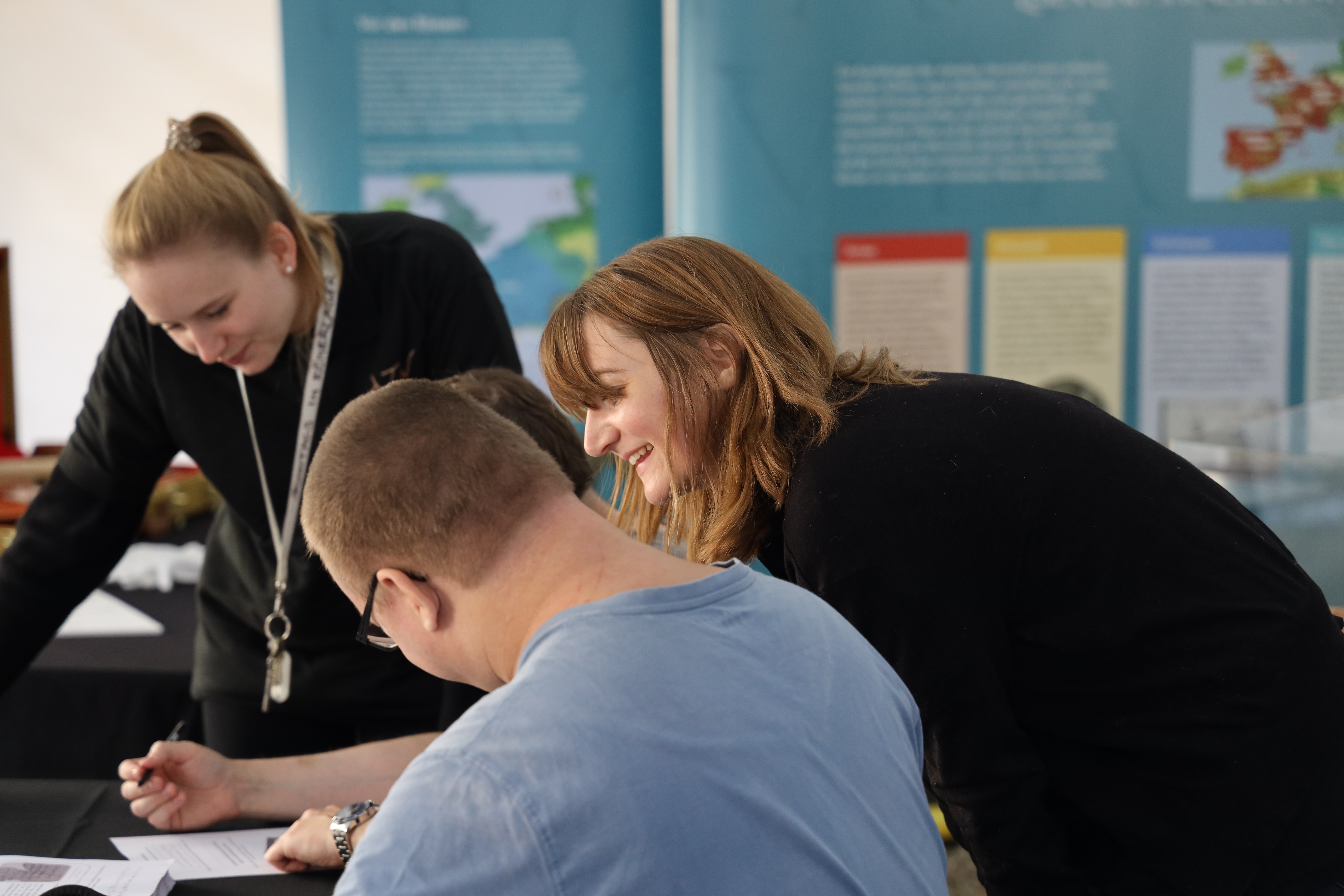
By Selina Stokar
After a glorious time in France, VOCES POPVLI’s next stop was the Vindonissa Museum Brugg in Switzerland, where the archaeological treasures of ancient Vindonissa are kept.
Here, the team for the German speaking part of the tour – Anna and our driver Alex, who is now fluent in German or at least he now knows ‘Rivella’, the most important word – was joined by (taaadaaa!) me, Selina Stokar. I am a History and Classics student at the University of Zurich and used to work with Anna during her PhD. That is also when my love for Roman inscriptions began, and with the VOCES POPVLI Tour it has of course grown even more! Coincidentally, I am also doing an internship at the Vindonissa Museum, so when Anna asked me to assist her for this part of the tour I immediately said yes!
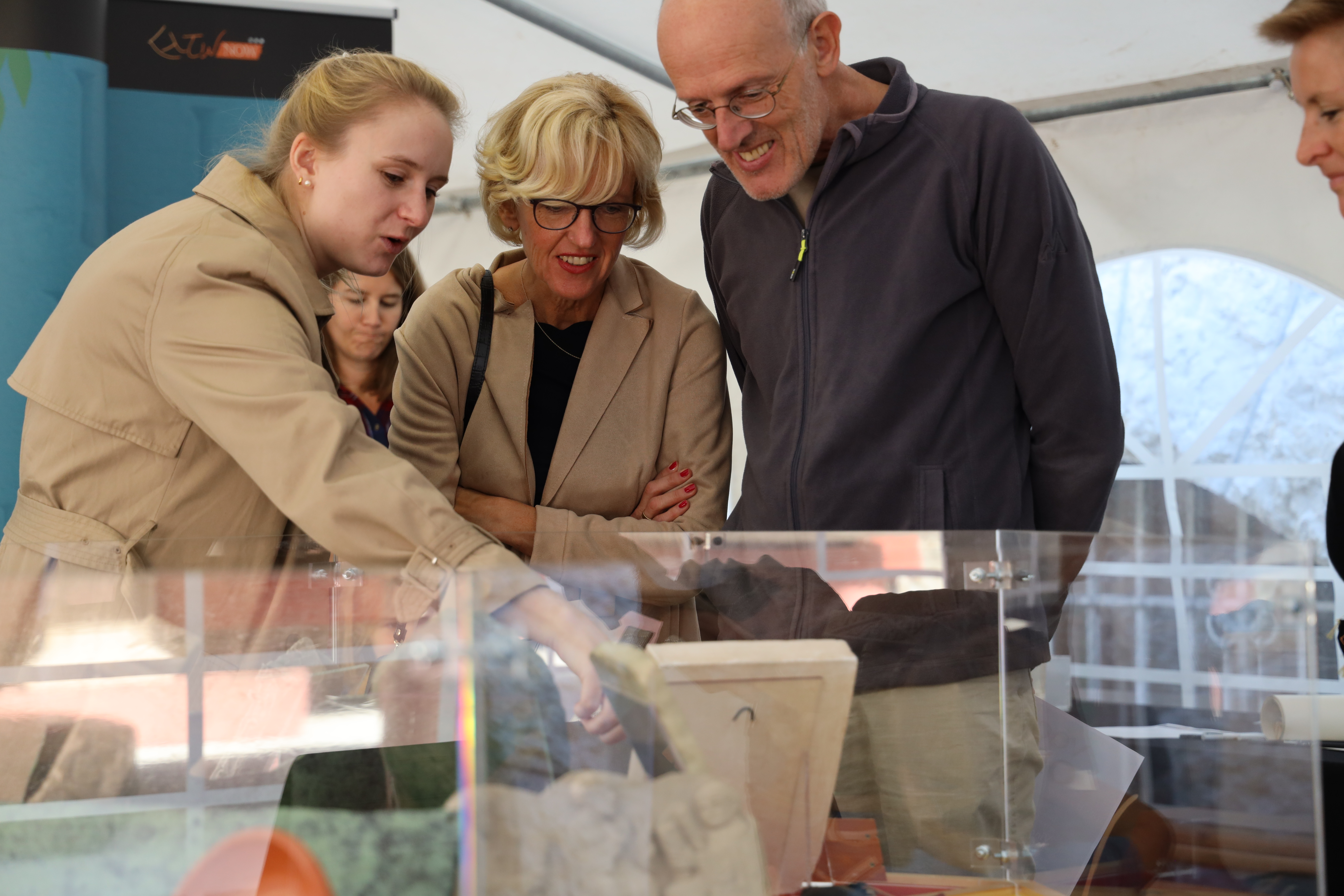
Nowadays, Brugg is a very quiet, nice little town near the German border (lots of cows and colourful buildings, just as you would imagine Switzerland to look like). In Roman times, Vindonissa (the Roman name of Brugg / Windisch) was the only legionary camp based in modern Switzerland (we are very proud of this fact). Around 15 BC a first military camp was set up near an older pre-Roman settlement. In the following 100 years, three legions – the 13th, the 21th and the 11th – lived in the camp and constantly enlarged it until the last legion left Vindonissa in the year 101 AD to fight in emperor Trajan’s Dacian Wars. There was also a little village (vicus) for civilians next to the camp as well as an amphitheatre, where 11’0000 visitors could enjoy their free time. With 6000 legionaries, their families and all the other staff that normally accompanied Roman legions, I guess ancient Brugg / Windisch was busier than it is today!
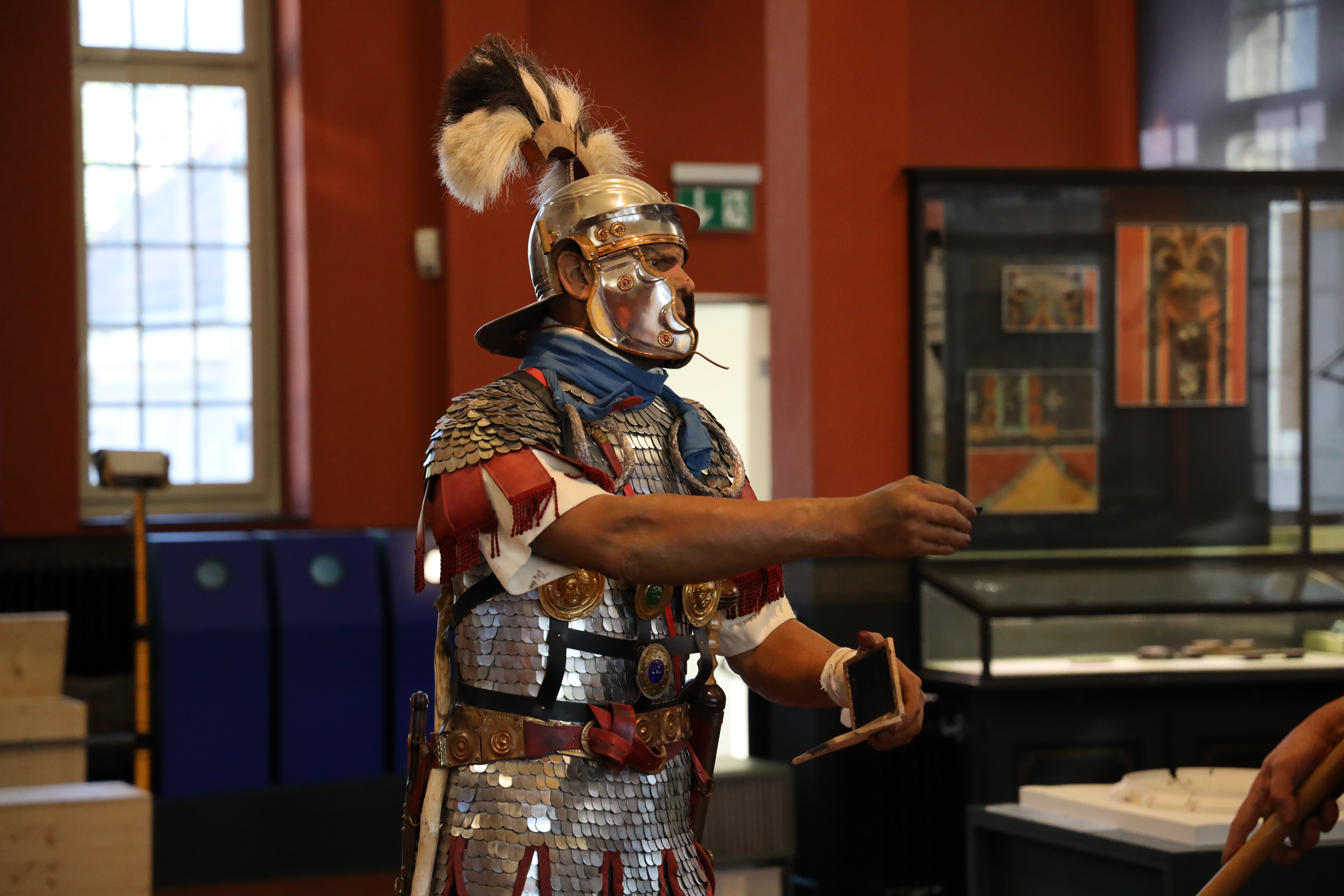
The greatest treasure of Vindonissa – and the reason why VOCES POPVLI came here – is the garbage dump of the legionary camp: for over 70 years, the inhabitants of the camp and the vicus piled up their waste just outside the northern gate of the camp (imagine the smell – urrgh!). Due to advantageous soil conditions (like in Vindolanda), many organic objects such as shoes or leather goods put on the pile were preserved. Most importantly: over 600 fragments of Roman wooden writing tablets, 65 of which are still readable, were found in the garbage dump! Just like the ink tablets from Vindolanda they tell us about the day-to-day life in the camp and the vicus and offer an excellent insight into Roman everyday life. For example, there is a letter by a soldier who was on holidays but still asked for news from his comrades. He was apparently homesick and missed his normal life at the legionary camp! Furthermore, his handwriting reveals that he was not used to writing, and he made a few mistakes (which were all corrected later). Maybe he was an auxiliary soldier who had just learned Latin and writing in the army. And – just as in Vindolanda – there is a tablet written or at least sent by a woman. Unfortunately, only the names of the sender, Vindoinsa (a Celtic name), and the addressee, Annius Lucianus, are still preserved.
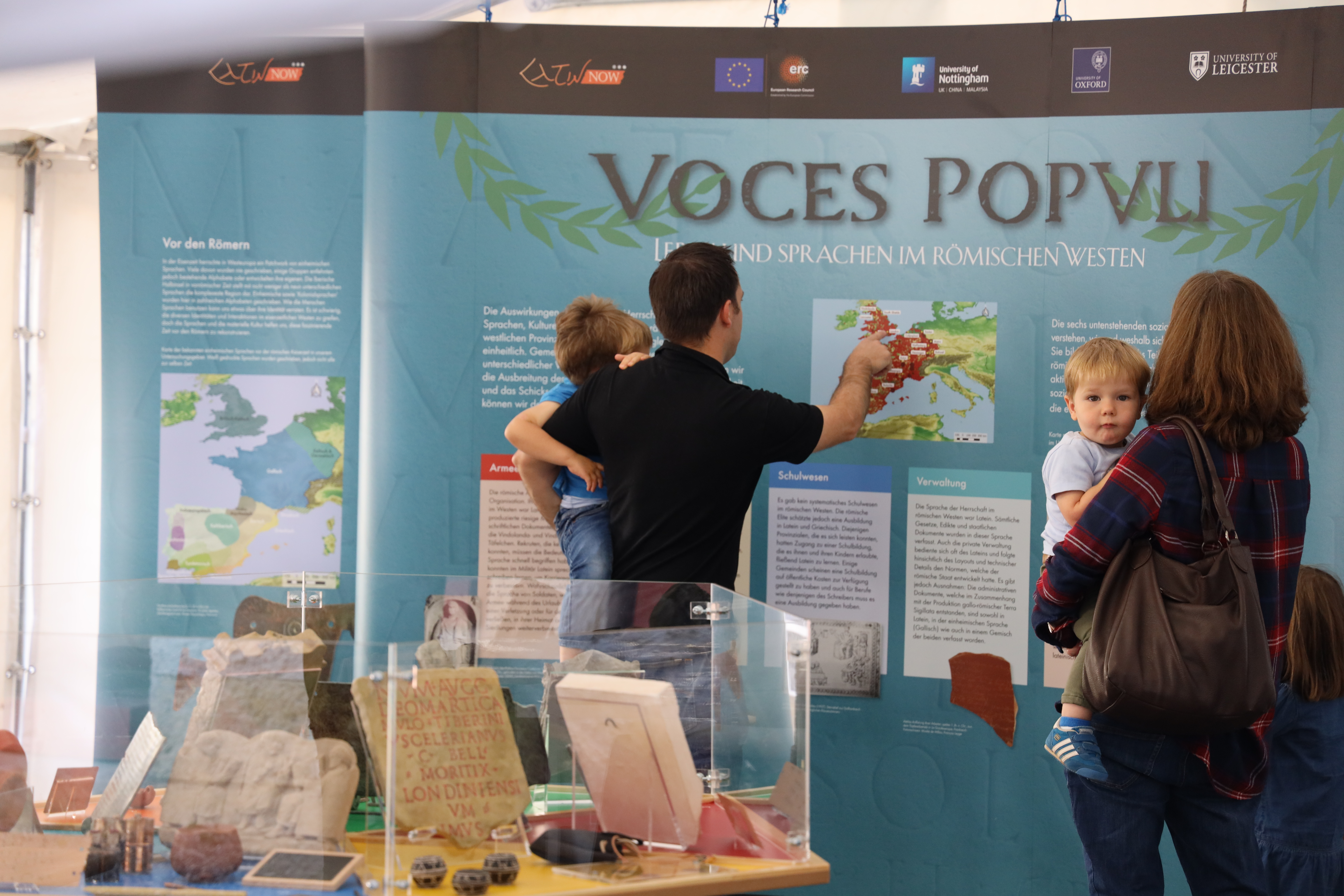
During our two days in Brugg many interested visitors found their way to our exhibition which was located in a tent in the garden of the museum, surrounded by Vindonissa’s stone inscriptions. As we visited during the school holidays, some teachers came without their students to get inspiration for their Latin or History lessons. There were also a few kids who practised their Latin handwriting and made a curse tablet. One boy wrote a wish instead: “World domination”, it was! How ambitious – and even a little Roman!
All our visitors were highly enthusiastic about the objects and the topic of the VOCES POPVLI exhibition. Writing and the use of language seems to be something people can identify with, and they are amazed by how it worked in Roman times. They all stayed for quite some time and were eager to discuss all the objects displayed. For me, the most surprising thing was that children were able to read the two texts in Old Roman Cursive we brought along much more easily than adults, some of them literally just read them out loud without even looking at the alphabet key!
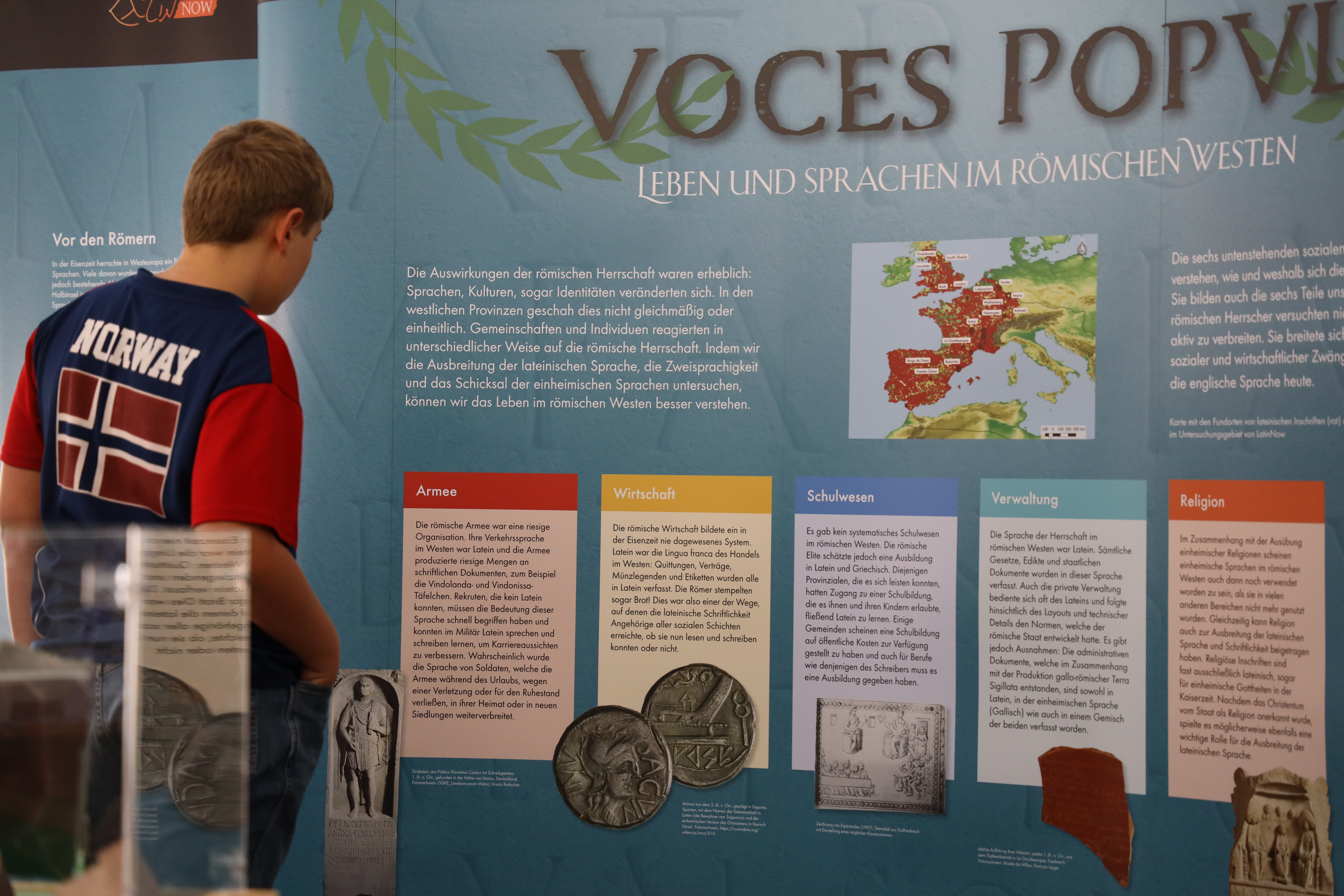
We enjoyed two lovely days at the Vindonissa Museum in Brugg and at the very moment we started packing up the display and all the objects to leave for Trier, the biggest thunderstorm broke loose. Luckily (or thanks to Jupiter, who knows), our tent resisted all the rain and we were ready to take off for Trier!